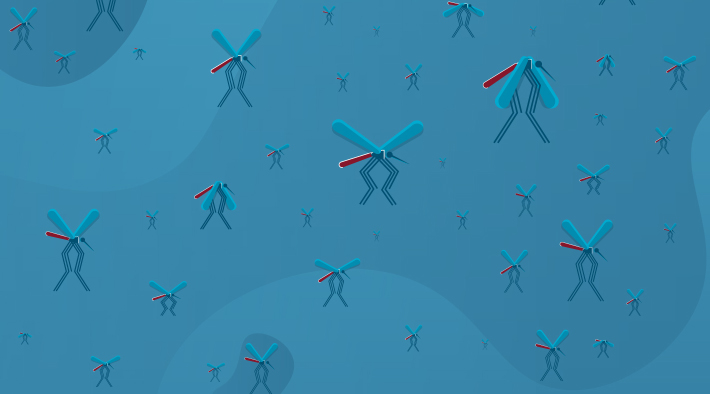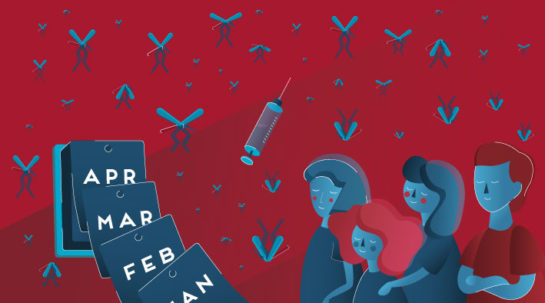
Driving deadly vectors from inhabited areas
Challenges
The malaria parasite and dengue virus are transmitted through the bites of infected mosquitoes.
World Health Organization (WHO) data from 2015-2017 shows no significant progress in reducing global malaria. There were an estimated 219 million malaria cases and 435,000 malaria-related deaths in 2017.
An estimated 50-100 million people are infected with dengue every year.
New vector-control tools are needed to complement methods already being used, such as insecticide-treated bed nets, long-lasting insecticide spraying and prevention drugs.
Solutions
Preventing mosquito-human contact helps control the diseases.
Spatial repellents are chemicals introduced into the air to repel mosquitoes and disrupt their habits, including, possibly, their feeding and reproductive behaviour.
The University of Notre Dame’s AEGIS project will evaluate slow-release spatial repellents that can be easily deployed in houses and temporary shelters. The repellants are delivered via small, clear plastic sheets hung in strategic spots.
The work includes three clinical trials, in Kenya, Mali and Sri Lanka, as well as a study among displaced populations in refugee settings in Uganda. Malaria will be the focus in Kenya, Mali and Uganda, and dengue, Zika and other vector-borne diseases in Sri Lanka. AEGIS stands for Advancing Evidence for the Global Implementation of Spatial Repellents.
“This grant will enable research with the potential to transform the lives of millions of people around the world who suffer from mosquito-borne disease. We’re grateful for the confidence Unitaid has shown in the University of Notre Dame to lead this program.”
Robert J. Bernhard, vice president of research, University of Notre Dame
The impact we are seeking
The program aims to generate data that would allow WHO to recommend spatial repellent use for public health channels, including in humanitarian crises.
The University of Notre Dame leads a project team in collaboration with industry partner SC Johnson to develop the new spatial repellent delivery method, advance the insect-borne disease research and test the product in multiple endemic areas around the world. Notre Dame will also work with a number of consortium partners, including the Kenya Medical Research Institute, the U.S. Centers for Disease Control and Prevention, Catholic Relief Services, the National Dengue Control Unit in Sri Lanka, the Johns Hopkins Center for Communication Programs, and FHI 360.
Grantee's project page

Project website.


